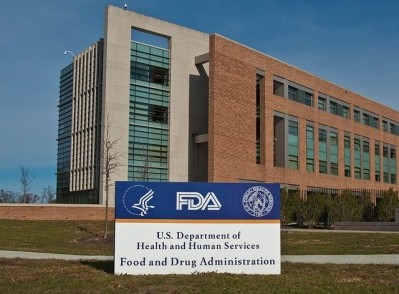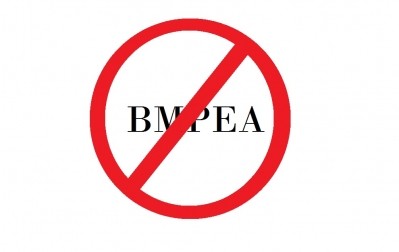FDA says BMPEA not a legal ingredient, sends warning letters to 5 companies listing stimulant on labels

In the announcement, FDA noted that to take such action it must by law determine either that a product is adulterated or is misbranded. BMPEA was in fact listed on the labels of the products cited in the warning letters, but these products are adulterated because BMPEA is not a lawful dietary ingredient.
‘While BMPEA was listed as a dietary ingredient on the product labels, the substance does not meet the statutory definition of a dietary ingredient. The Federal Food, Drug, and Cosmetic Act defines a dietary ingredient as a vitamin; mineral; herb or other botanical; amino acid; dietary substance for use by man to supplement the diet by increasing the total dietary intake; or a concentrate, metabolite, constituent, extract, or combination of the preceding substances. BMPEA is none of these, rendering misbranded any products that declare BMPEA as a dietary supplement,” the agency said.
Rising pressure
Pressure on the issue had been steadily rising since Cohen’s paper was recently published in the journal Drug Testing and Analysis (April 2015; published online ahead of print). The team led by Cohen, of Harvard Medical School, found BMPEA (or B-methylphenethylamine, a positional isomer of amphetamine) in varying quantities in 11 of 21 dietary supplement tested whose formulations were listed as being based on Acacia ridigula extracts. Following on Cohen’s paper US Senators Dick Durbin, D-IL and Richard Blumenthal, D-CT and well as US Sen. Chuck Schurmer, D-NY, called on FDA to ban BMPEA.
Dr Cohen's paper built upon a study by FDA scientists published in the in the Journal of Pharmaceutical and Biomedical Analysis (Jan 2014, Vol. 88, pp. 457-466), which concluded: “Given the low natural abundance of PEA it the plant materials, it appears nearly impossible to achieve the amounts of [BM]PEA found in the dietary supplements by formulating them with plant material or extracts of A. rigidula. [BM]PEA, a positional isomer of AMP, was found in 9 of 21 dietary supplements analyzed at levels ranging from 963 to 60,500 micrograms per gram. We found no safety data on the biological effects of this isomer in humans.”
System is working
“We had a statement after the study came out from Dr Cohen where we called on the agency to act. We are very pleased with agency’s announcement and that it used one of the tools that is available to it. It’s the kind of act that is needed to reinforce consumer confidence. They need to know that the agency has their backs and if someone is putting out products with an ingredient that is unsafe or is potentially unsafe that the agency will take action,” Steve Mister, president and CEO of the Council for Responsible Nutrition told NutraIngredients-USA.
“We hope they will aggressively pursue these companies,” he said.
“There is a part of this that is responding to external pressure,” said Daniel Fabricant, PhD, executive director of the Natural Products Alliance. “FDA’s mandate is about safety, but some of it is administrative. BMPEA is administratively illegal and that’s how the agency is addressing this issue and that’s well within their legal authority. People need to understand that this is called amphetamine because of its structure, but that does not necessarily mean something about its biological activity. Those items that are top of the heap for FDA action are those that are both illegal and unsafe.”
The United Natural Products Alliance already has a no-sale policy in place for members on BMPEA. Loren Israelsen, president of UNPA, had this to say about FDA's action:
“FDA has now determined that BMPEA is not a dietary ingredient and has issued warning letters, which if ignored, will mean further regulatory action from the agency. This is how the Dietary Supplement Health and Education Act was intended to work, and when enforced, it works as envisioned by its authors. If other non-dietary ingredients are found in products being sold as dietary supplements, we expect that FDA will continue to take action as the law directs it to. We also recognize that FDA’s mission is broad and deep, and frankly, underresourced."
FDA issued five warning letters to the following companies: Hi-Tech Pharmaceuticals, Tribravus Enterprises d/b/a iForce Nutrition, Train Naked Labs, Better Body Sports and Human Evolution Supplements. Of these, the products mentioned in the Hi-Tech letter were also in Cohen’s study. Tribravus Enterprises was also featured in Cohen’s study, but for a different product than the one for which it received a warning letter.
Cohen: Basic issue still unresolved

Cohen said it’s important to note that there is little overlap in the products he studied and the products on which the five warning letters were based. Cohen’s study was about products whose formulations were based on (or were claimed to be based on) Acacia rigidula extracts. FDA’s warning letters were about products that listed BMPEA on the labels. The warning letters do not address whether A. rigidula is a legal dietary ingredient. A question has been raised whether this ingredient ought to have a New Dietary Ingredient notification; to date FDA has said it has not made a determination on the ingredient’s status.
“They’re only warning companies that openly list BMPEA. They have made no comment whatsoever on the legality of A. rigidula in supplements. There is little overlap between products in my study and the FDA’s warnings today,” Cohen said.
Cohen called the issuance of the ban and the sending of the warning letters a “baby step” in the right direction, but said the wider issue remains that in his view either FDA’s commitment to enforcement is lacking or the tools at its disposal are insufficient. Without stiffer consequences, the whole exercise could be just another blow of the mallet in the whack-a-mole game.
“The information that the FDA used to issue warnings letters appears to be based on information that the agency has had for two years. This raises many important questions: Why did the FDA take two years to warn consumers about the sale of a synthetic drug in supplements? Why did the FDA wait two years to send warning letters to companies? And what, if any, consequences are there going to be for companies who have been doing so?
"This last question is particularly important as we know other companies, or even these same companies, will quickly replace BMPEA with other synthetic stimulants if there are not significant consequences for selling synthetic stimulants as botanical supplements. Beyond simply banning BMPEA, the FDA must now reconsider what went wrong to ensure that DSHEA is aggressively enforced moving forward,” Cohen said.









